Advertisement
9 Vegan Condoms To Buy Instead In 2023 + What It Means


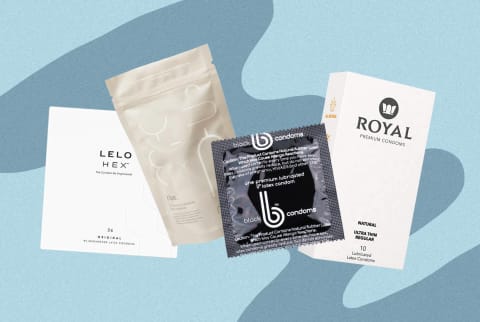
Even if you're eco-conscious in most areas of your life, chances are your sexual protection methods are a little less friendly to Mother Earth.
Albeit necessary, condoms are a single-use product, which contributes to waste. That said, there are ways to be more thoughtful about the condoms you purchase.
We spoke to OB/GYNs to help you parse through terms like organic, natural, and vegan when it comes to condoms. Here's what these terms mean, plus a list of vegan condoms to consider purchasing instead.
What is a vegan condom?
Vegan condoms simply describe condoms that are free of animal products or byproducts.
Some people assume condoms are just automatically vegan, but that's not always the case. Most condoms are made from latex, which is a plant-based product.
However, some latex condoms are made smooth by resting in a bath of casein (a milk byproduct), which makes them non-vegan, integrative gynecologist Shawn Tassone, M.D., Ph.D., explains.
"There are also condoms on the market that are lambskin, which obviously would not qualify as a vegan condom," he adds.
Summary
Natural vs. organic vs. vegan: What's the difference?
Eco-friendly jargon can be confusing and vague. It's important to understand that natural, organic, and vegan are not interchangeable terms.
Natural
Natural ingredients refer to ingredients that were not made in a lab, meaning they're not artificial or synthetic. However, when a product is advertised as natural, it doesn't necessarily mean every ingredient is free of chemicals.
'There is no hard-and-fast rule about the requirements for a product to call itself natural," OB/GYN Heather Irobunda, M.D., previously told mbg.
"Sometimes, products with one or two natural ingredients can state that they are natural but may have lots of chemicals in them."
Organic
In general, "Organic means that the product was grown without the use of pesticides, synthetic fertilizers, or genetically modified organisms," osteopathic OB/GYN Anna Cabeca, D.O., tells mbg.
Vegan
Vegan condoms refer to those that are free of animal products or byproducts.
"Just because a condom is vegan doesn't necessarily mean they are organic or chemical-free," Tassone adds. "It just means they don't use casein to soften the latex, and the products are not tested on animals."
Are vegan condoms better for the vagina?
Vegan condoms are not necessarily better for the vagina than non-vegan condoms. They will protect against sexually transmitted infections (STIs) just as well as the ordinary variety.
And just like non-vegan condoms, they could still potentially contain harsh chemicals or unfriendly ingredients (i.e., gluten, talcum, parabens, nonoxynol-9, benzocaine, casein, nitrosamine, and spermicides) that could lead to an imbalance in the vaginal microbiome, according to Tassone.
Being vegan simply specifies the lack of animal product; it doesn't guarantee that ingredients are any better (or worse) for the vagina than any other condom.
"Currently, companies that make condoms are not required to put the ingredients on the packaging because condoms are considered a medical device," Tassone adds.
This is why looking for well-trusted brands, that are transparent about their ingredients, sourcing, and manufacturing, is so important.
Always talk to your health care provider if you have any issues, like irritation or burning, after sex with a condom. Additionally, anyone with a latex allergy should look for latex-free condoms.
Are they less effective?
In terms of efficacy, there is no difference between vegan and non-vegan condoms. "Condoms are dependent on correct usage of the product, and, if used the way they are intended, both vegan and regular latex condoms have about 98% effectiveness against STIs and pregnancy," Tassone tells mbg.
Are they better for the environment?
Vegan condoms may not necessarily be better for the environment.
"Almost all condoms are made from latex or a latex derivative—stuff that takes forever to degrade," Matthew Nolan, co-author of Oh Joy Sex Toy, told New York Magazine.
Vegan condoms are often still made from latex, meaning they're no better than ordinary condoms in terms of minimizing what ends up in the landfills.
That said, it's possible that brands that care enough to make a product vegan will also be more environmentally conscious about other areas of their business, from sourcing to packaging to shipping.
This isn't a guarantee, though, so be sure to read more about the businesses you're supporting to understand what standards they hold themselves to. Third-party certifications can also help distinguish brands that are committed to ethical, sustainable practices.
Vegan condoms to try.
GLYDE Ultra-Thin Condoms
As a female-owned company, GLYDE prides itself on its vagina- and body-friendly products. Their condoms are made of a plant-based latex and are free of casein, talc, parabens, and spermicide, as well as harsh chemicals, like benzocaine and nonoxynol-9. They are certified vegan by The Vegan Society, are a certified B Corporation, and have certifications from PETA and the Green Business Network, according to their website. Their rubber latex is also sustainably sourced from local, worker-owned producers that pay living wages and use harvesting practices that are gentler on the earth, according to the brand.
Ultra-thin condoms, GLYDE ($17.99)
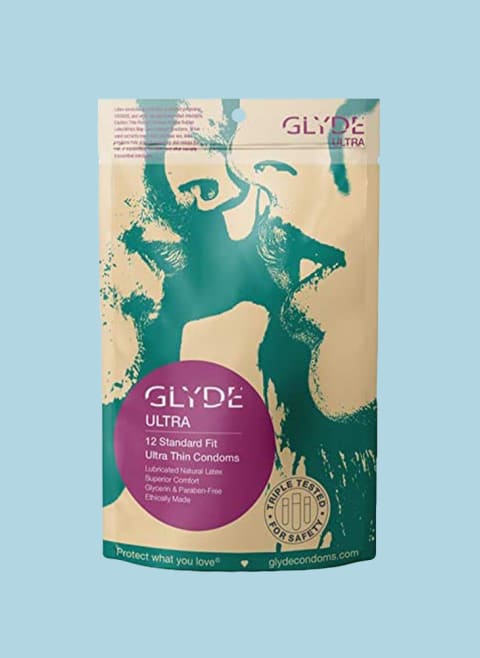
Sustain Large Comfort Fit Condoms
Sustain Natural condoms are non-GMO and free of gluten, animal products, and nitrosamines, making them vagina- and Earth-friendly. They are made with rubber sustainably sourced from a Forest Stewardship Council–certified plantation in India that provides medical facilities and schools for its workers and its workers' families, according to New York Magazine. Sustain Natural is also a certified B Corporation, and their condoms are certified vegan by the Vegan Awareness Foundation.
Large comfort fit condoms, Sustain Natural ($13.95)
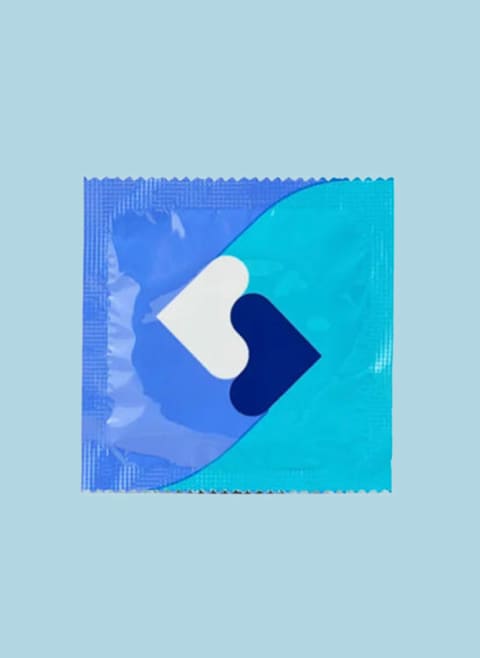
LOLA Ultra-Thin Latex Condoms
All of LOLA's sex products are vegan, including their ultra-thin latex condoms. According to their website, the product is gyno-approved and made with just three ingredients: natural rubber latex, cornstarch powder, and medical-grade silicone oil for the lube. LOLA is a woman-owned company that partners with nonprofits to support period equity and get period products in the hands of people in need.
Ultra-thin latex condoms, LOLA ($11)
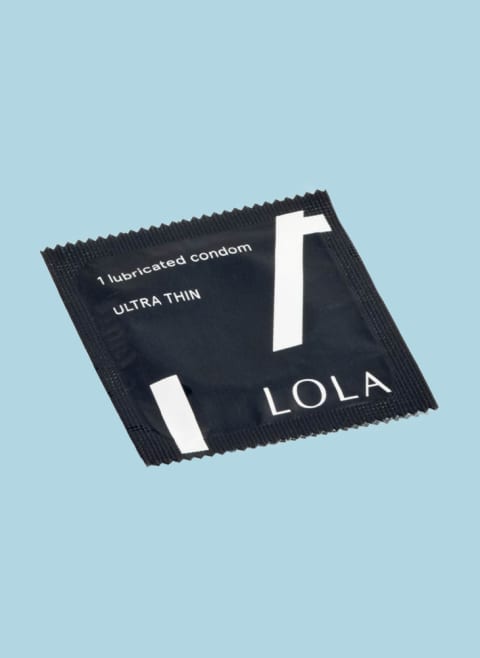
b condoms Black Latex Condom
b condoms black latex condoms are natural and vegan, aka free of pesticides, parabens, animal products, gluten, and glycerin. Along with being eco-friendly, the brand works to close the gap on health disparities. "We partner with nonprofits, donate thousands of condoms, and work to reduce sexually transmitted infections, unplanned pregnancy, and human trafficking in the Black community," they write on their site.
Black latex, b condoms ($12)
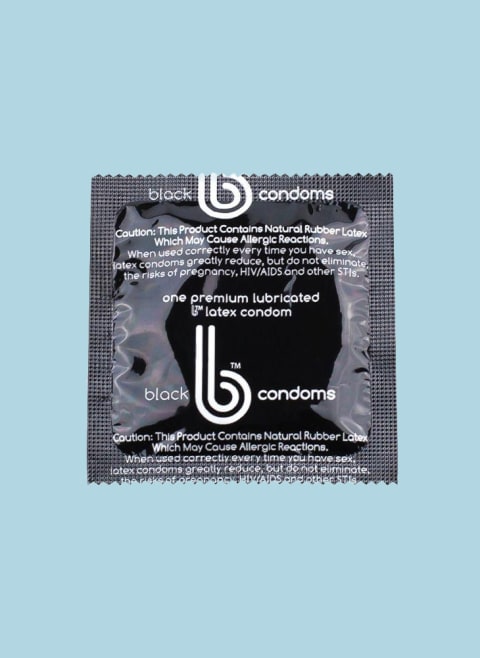
LELO HEX™ Condoms
With a hexagonal net inside, these condoms are meant to move flexibly with the body. They're also free of any animal derivatives, making them vegan-friendly. HEX™ condoms, LELO ($34.99)
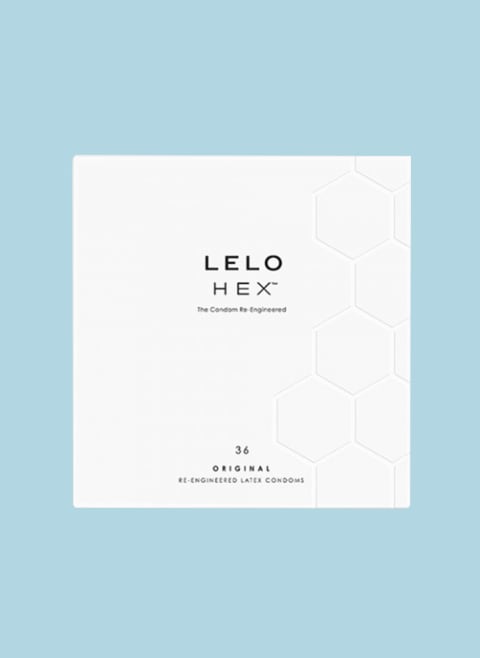
Royal Tailored Fit Ultra-Thin Condoms
These condoms are made with sustainably sourced natural rubber latex. They're also vegan, organic, gluten-free, and cruelty-free, according to the website, and the condoms are manufactured in North India in a facility that is "meticulously managed."
Tailored fit ultra-thin condoms, Royal ($12.99)
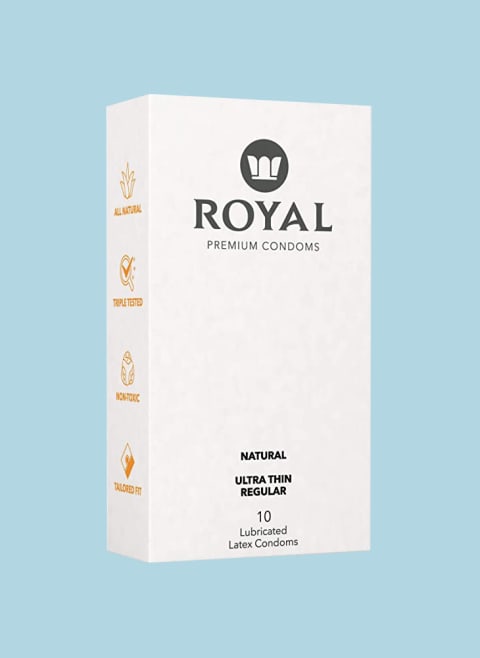
Lovability Ultra-Thin Condoms
Made for medium to large penis sizes, Lovability condoms are made of natural vegan latex and are free of dyes, fragrances, and spermicide. While the condoms themselves can't be recycled, of course, the paper packaging can.
Ultra-thin condoms, Lovability ($15)
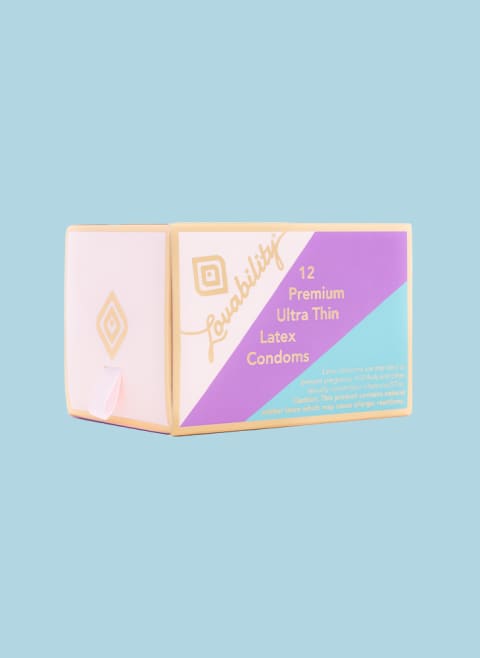
ONE Mixed Pleasure Condoms
This variety pack will keep your sex life interesting while also being eco-friendly. It contains a mix of flavors and textures, but all are made of vegan-friendly, spermicide- and fragrance-free natural rubber latex.
Mixed pleasure condoms, ONE ($6.99)
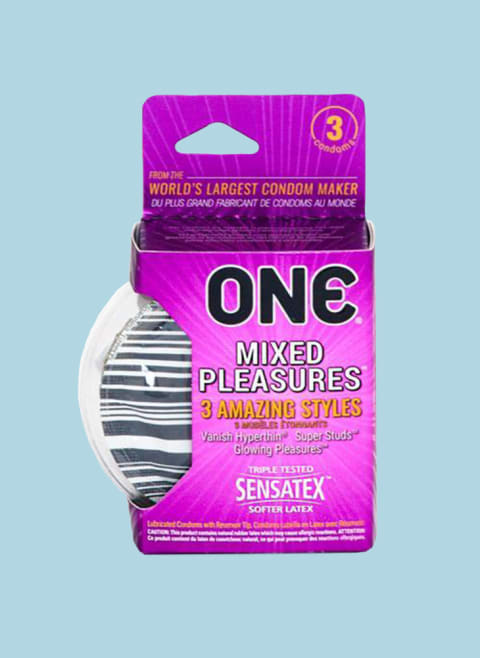
maude Natural Condoms
The natural latex condoms from maude are made with easy-to-open packaging for a pleasant experience, start to finish. They're free of fragrances, spermicides, animal byproducts, gluten, glycerin, parabens, spermicide, and other harmful chemicals. The plastic part of the condom packaging is recyclable.
Natural condoms, maude ($12)
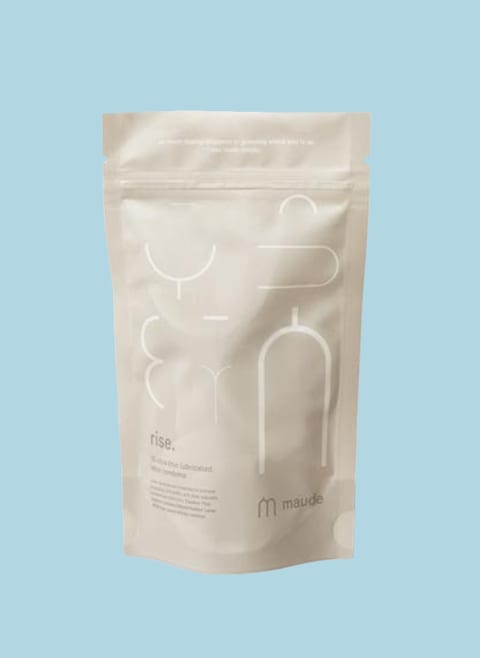
The takeaway.
Vegan condoms are any condoms made without animal byproducts, like casein. When used correctly, they are just as effective as regular non-vegan condoms.
They're not necessarily more natural or organic, and they can also be made with harsh chemicals that could disrupt the vaginal microbiome, just like any other type of condom.
Buying from a trusted, ethical, and eco-friendly brand and consulting with your OB/GYN are the best ways to ensure your condoms are safe and effective.











